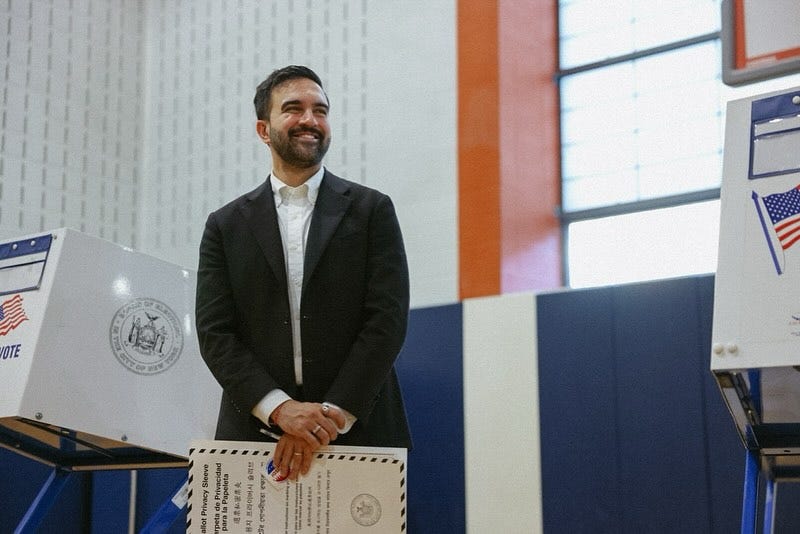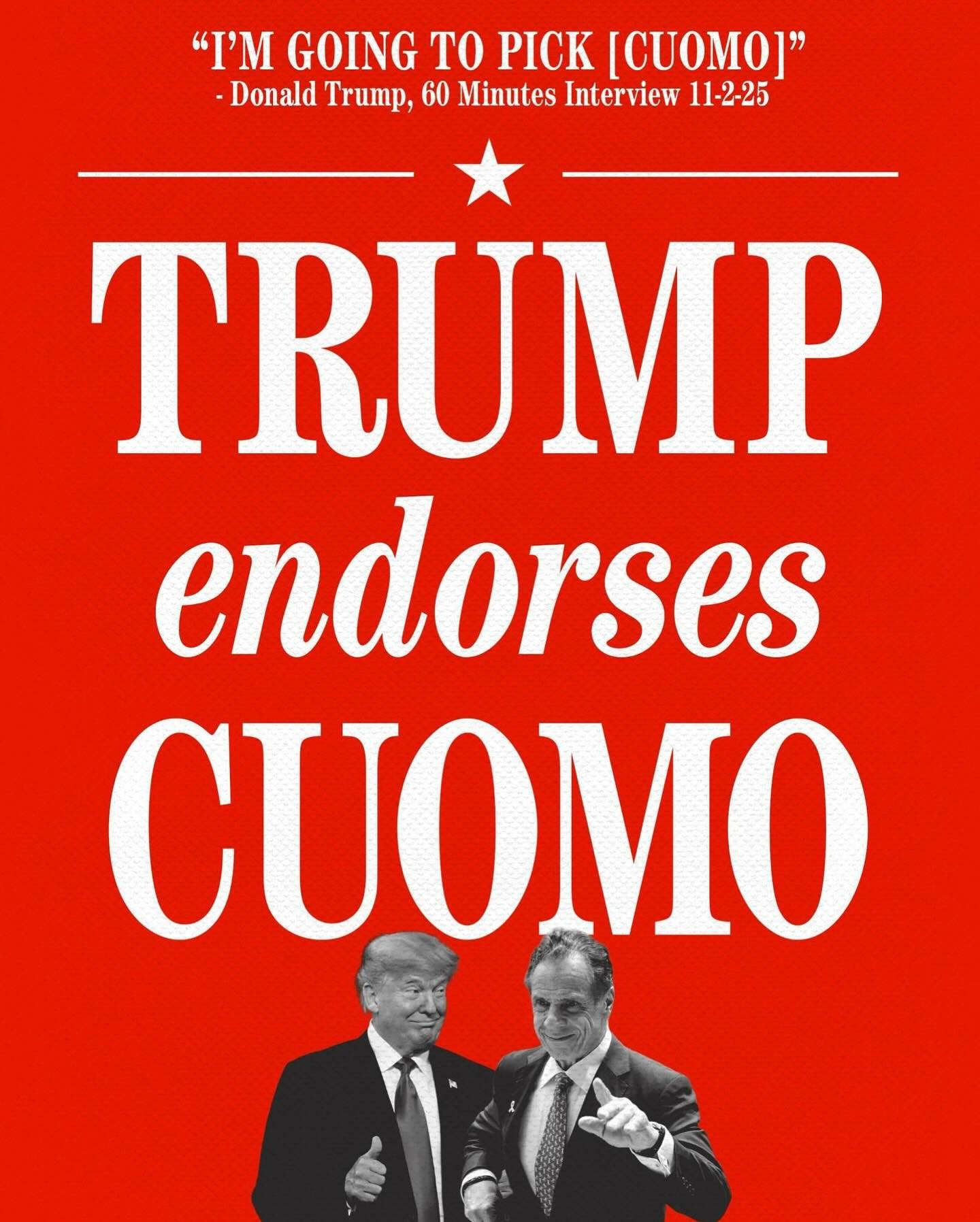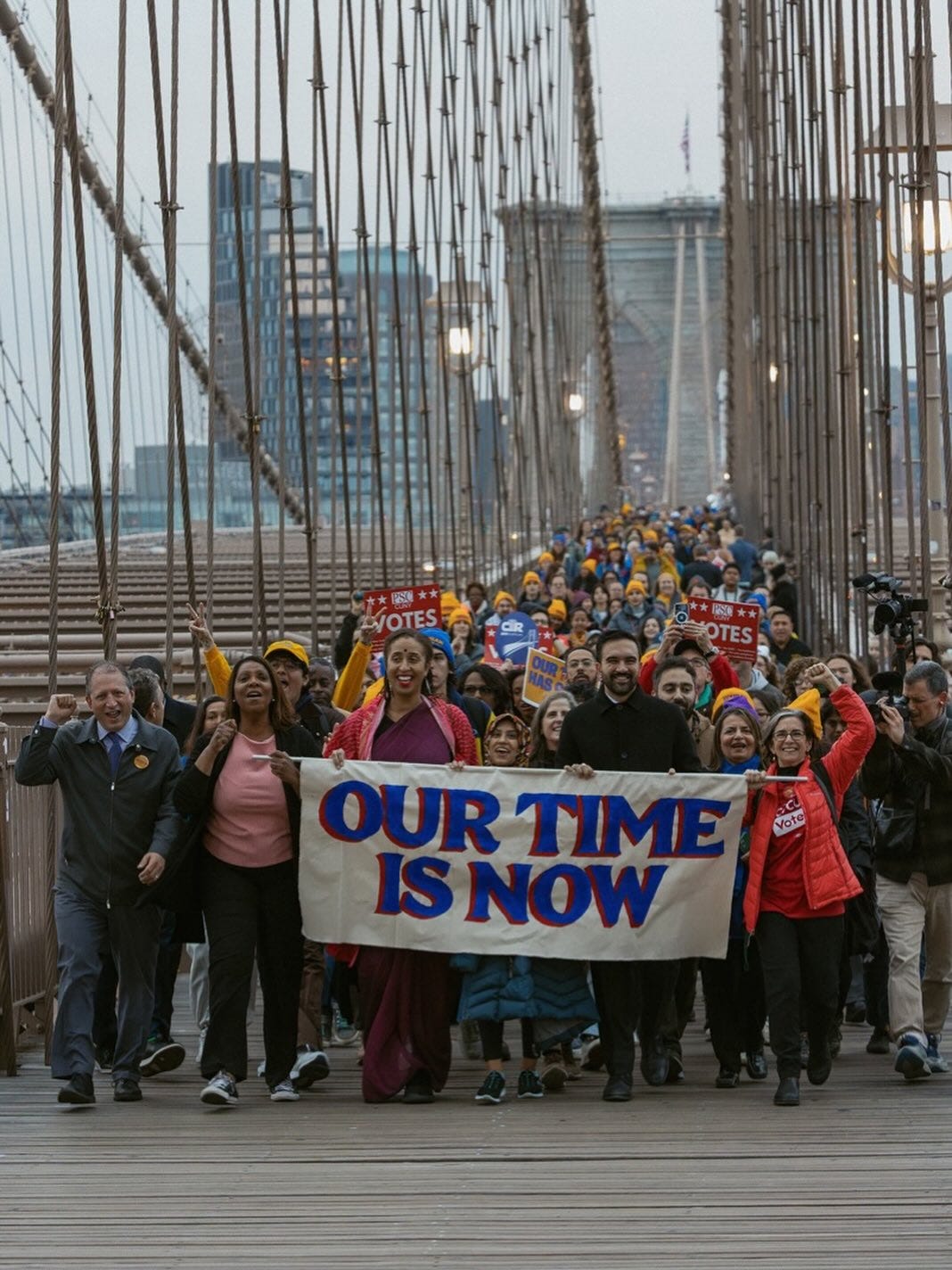Muslim Identity Takes Center Stage Zohran Mamdani’s Historic NYC Mayoral Bid Exposes America’s Religious Fault Lines
Zohran Mamdani, a 33-year-old Democratic socialist and New York State Assemblyman, stands poised to become New York City’s first Muslim mayor as voters head to the polls on November 4, 2025, in a historic race that has crystallized both the rising political power of Muslim Americans and the persistent Islamophobia they face in contemporary America.
His candidacy, which culminated in a stunning upset victory over former Governor Andrew Cuomo in the Democratic primary, has transformed from a long-shot progressive campaign into a referendum on Muslim representation in American politics. The Islamophobic attacks and political pressures targeting Mamdani throughout his campaign have revealed deep anxieties about Muslim political leadership in America’s largest city, with President Donald Trump threatening to withhold federal funding if Mamdani wins.
The Muslim Community’s Complex Emotions
Muslim voters across New York City are experiencing simultaneous feelings of immense pride and profound fear as one of their own approaches potential victory in the mayoral race, according to reporting by The New York Times. Ajifa Marenah, a 27-year-old leader within the West African immigrant community and president of the Muslim Democratic Club of New York, captured this duality after standing behind Mamdani during his emotional 10-minute speech at the Islamic Cultural Center of the Bronx: “I felt immense pride in Zohran, witnessing him confidently embrace his Muslim identity. Yet, there’s a shared fear, as this hate doesn’t just affect Zohran; it extends to any Muslim man seen with a beard”.
The speech itself represented a departure from routine campaigning, as Mamdani was forced to address directly how Islamophobia has influenced his life and that of his family and friends. According to The New York Times, Mamdani spoke about “an aunt who stopped using the subway after September 11 due to fears about wearing her hijab and a friend coerced into becoming an informant,” reflecting on how Muslims were taught that “safety could only be sought in the shadows of our city”.
Presidential Intervention Raises Stakes
The race took on national significance when President Trump issued an unprecedented threat to withhold federal funding from New York City if Mamdani wins the election. “If Communist Candidate Zohran Mamdani wins the Election for Mayor of New York City, it is implausible that I will be contributing Federal Funds, other than the very minimum as required, to my beloved first home,” Trump wrote on Truth Social. The president endorsed Cuomo, stating, “Whether you personally like Andrew Cuomo or not, you really have no choice. You must vote for him”.
Trump also accused Mamdani of being a “proven and self-professed Jew hater,” even though Mamdani has repeatedly pledged to boost funding for investigations into anti-Semitic incidents and enjoys backing from several Jewish organizations and political leaders, according to NBC. During a Sunday television interview, Trump described Mamdani as a “communist,” asserting, “It’s gonna be hard for me as the president to give a lot of money to New York, because if you have a communist running New York, all you’re doing is wasting the money you’re sending there”.
From Kampala to City Hall, An Immigrant’s Journey
Born in Kampala, Uganda, to the academic Mahmood Mamdani and filmmaker Mira Nair, Zohran Mamdani immigrated to South Africa when he was five and then to the United States when he was seven, settling in New York City. He graduated from Bronx High School of Science and received a bachelor’s degree in Africana studies from Bowdoin College in Maine in 2014. Before entering politics, Mamdani worked as a housing counselor, helping low-income homeowners fight foreclosure.
He became a naturalized American citizen in 2018, just two years before his first successful campaign for the New York State Assembly, where he defeated five-term incumbent Aravella Simotas in the 2020 Democratic primary. Dunya News TV reported that his political career began with grassroots activism, making him “one of the first South Asian and Muslim lawmakers elected to state office”. Representative Alexandria Ocasio-Cortez has endorsed him, calling him “a leader who listens to the working class”.
Historic Primary Victory Defies Political Establishment
Mamdani’s primary victory represented one of the most significant political upsets in New York City history, as he overcame former Governor Cuomo despite facing massive institutional advantages. First-choice results on election night showed Mamdani had a significant lead over Cuomo, who conceded the race that evening. On July 1, after the New York City Board of Elections released its ranked-choice ballot tabulation, the Associated Press announced Mamdani had won the Democratic primary, which was “considered a major upset”.
His campaign benefited from endorsements by Senator Bernie Sanders and Representative Alexandria Ocasio-Cortez, who helped galvanize progressive voters across the city. Mamdani’s rallies “have attracted thousands of young voters and immigrant families, giving his campaign a sense of movement rarely seen in local politics,” according to Dunya News TV. His message resonated particularly strongly with younger voters, driving higher youth turnout and potentially setting the stage for a record election year.
A Progressive Platform Centered on Affordability
Mamdani’s campaign has focused relentlessly on economic issues affecting working-class New Yorkers struggling with the city’s notoriously high cost of living. His platform includes support for freezing rents in rent-stabilized housing, free city bus service, city-owned grocery stores to drive down prices, universal childcare, 200,000 new affordable housing units, comprehensive public safety reform, and a $30 minimum wage by 2030. “This campaign is about power – returning it to the people who make New York run every day,” Mamdani told supporters at a rally in Astoria.
The ambitious agenda calls for raising approximately $9-10 billion by increasing taxes on corporations and individuals earning above $1 million annually. However, he would face challenges in obtaining the necessary consent from the New York State legislature. CNBC reported that his “progressive agenda has sparked significant backlash from wealthy city residents and business groups, with political action committees opposing him raising over $40 million to support Cuomo’s campaign”. His opponents have criticized his platform as “unrealistic and too radical for a city still recovering from economic strain,” according to Dunya News TV.
Election Day and National Implications
The general election on November 4 features Mamdani running against Cuomo, now an independent candidate after losing the Democratic primary, and Republican Curtis Sliwa, founder of the Guardian Angels. Recent polls indicate Mamdani has maintained a lead in the competition, with the latest AtlasIntel poll showing Mamdani at 41 percent, followed by Cuomo at 34 percent, and Sliwa at 24 percent. Le Monde described the race as “the country’s most closely watched political drama” with “outsized importance in the United States and beyond”.
If elected, Mamdani would become not only New York City’s first Muslim mayor but also its first Asian American mayor and its youngest mayor in decades, marking “a historic political shift,” according to Firstpost.
A July 2025 poll indicated a shift in Jewish American political attitudes, with 43% of Jewish New Yorkers and 67% of Jewish voters under 44 planning to support Mamdani
levels of support suggesting waning attachment to traditional pro-Israel politics, while many Jewish leaders and voters remained critical of Mamdani. As voters cast ballots today, the outcome will determine not only who leads America’s largest city but also whether Muslim Americans can achieve the highest levels of political office despite facing religiously motivated attacks and presidential intervention.





